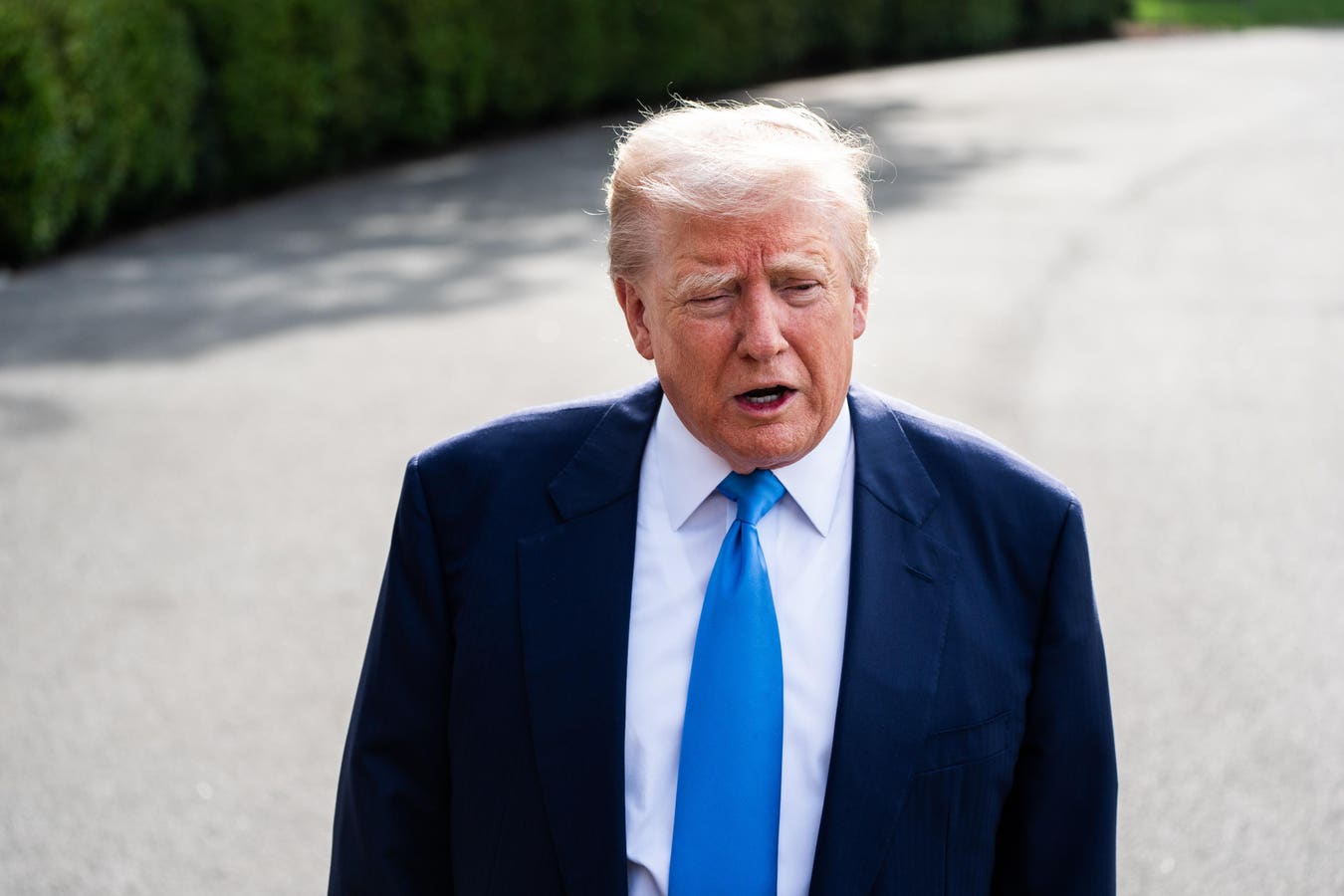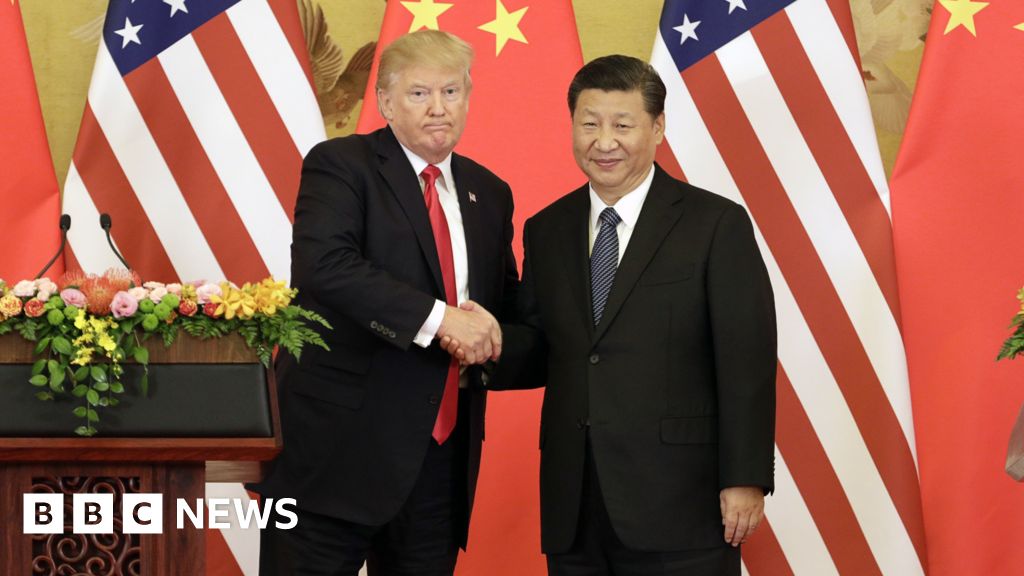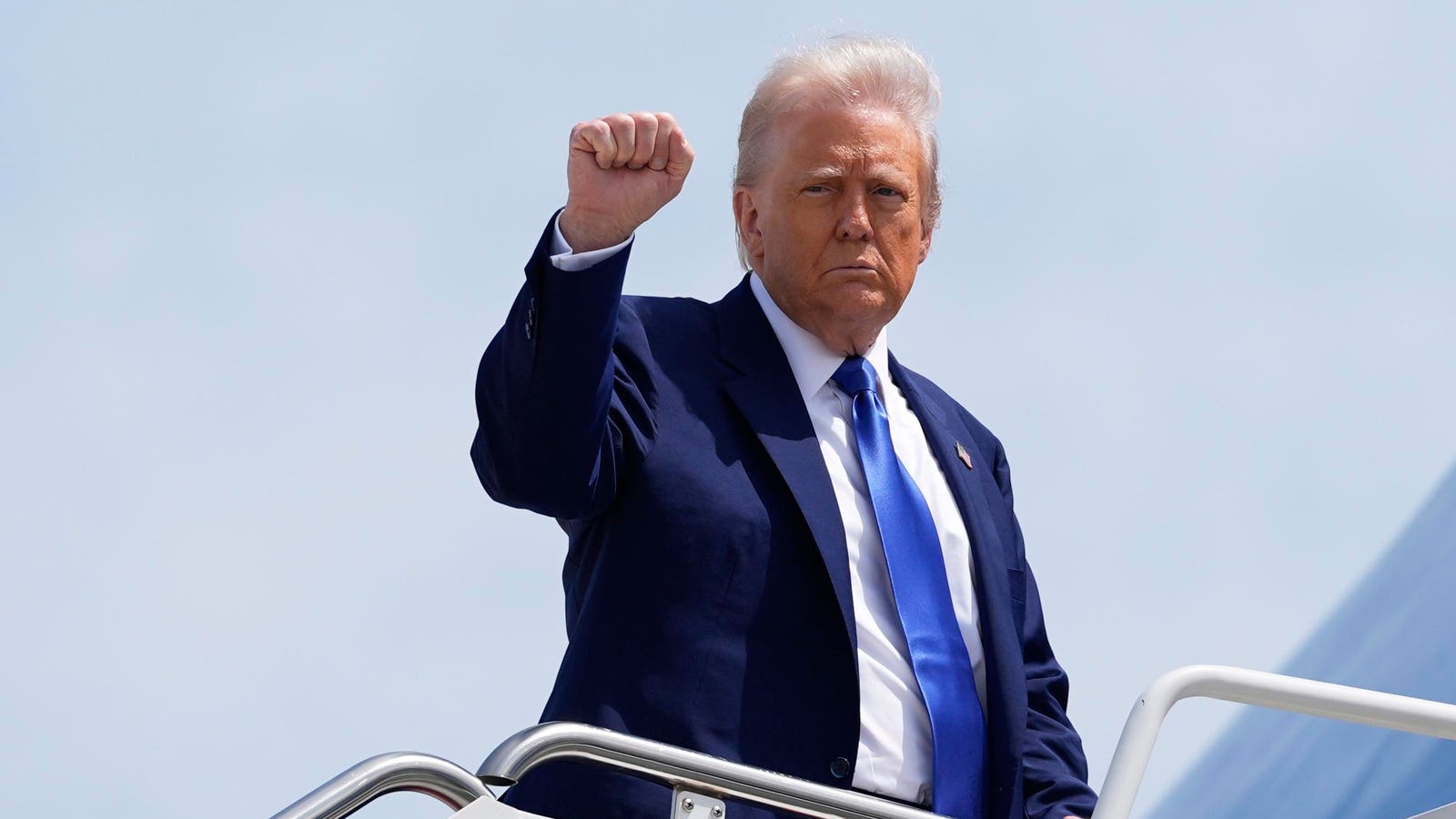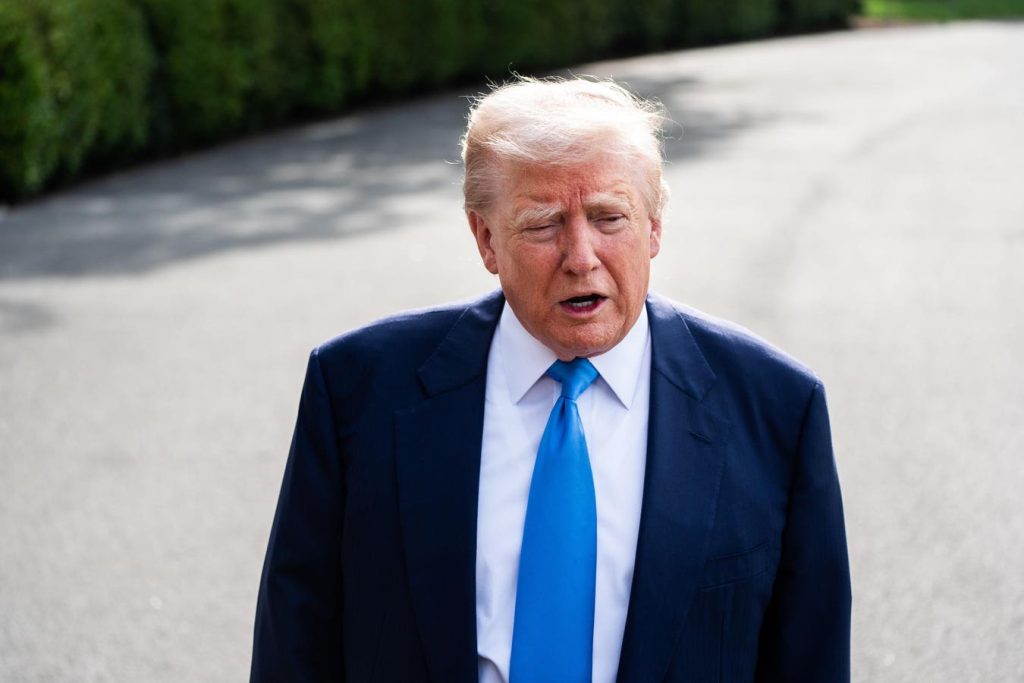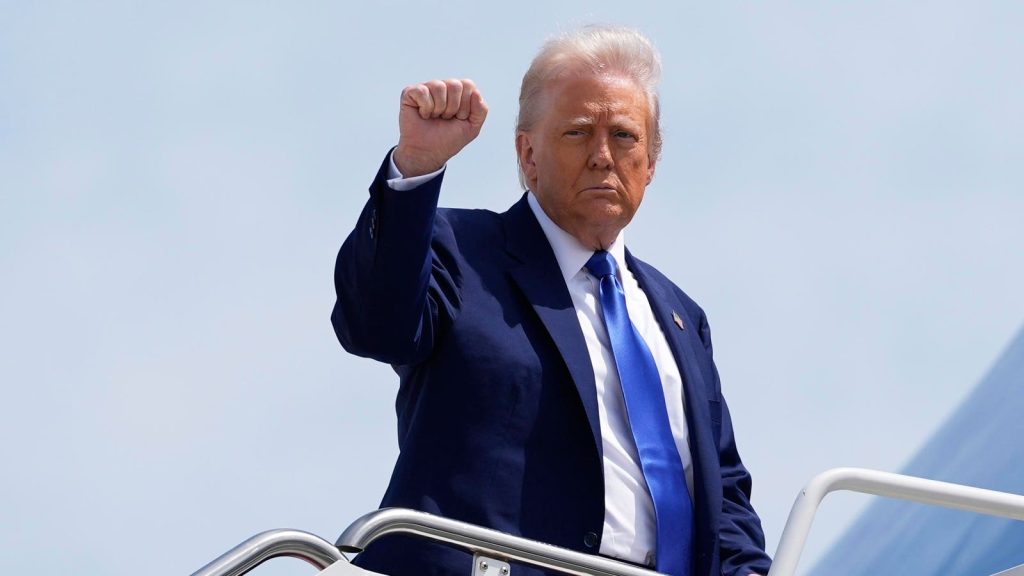Topline
The U.S. Court of International Trade will consider Tuesday whether to block President Donald Trump’s “Liberation Day” tariffs as litigation against the levies moves forward—marking the first major court hearing over Trump’s sweeping tariff policy.
President Donald Trump boards Air Force One on May 12 at Joint Base Andrews, Maryland.
Key Facts
The U.S. Court of International Trade is considering a request by a coalition of small businesses to broadly halt Trump’s “Liberation Day” tariffs on foreign imports—the firms are seeking an injunction that would pause tariffs while their broader lawsuit against them plays out.
Plaintiffs argue Trump’s tariffs are unlawful because while the president said he implemented the tariffs under the International Emergency Economic Powers Act (IEEPA), that law—which allows presidents to impose some economic sanctions during national emergencies—does not permit imposing tariffs, and there is no national emergency to justify using the law even if it did.
The tariffs must be halted immediately while the litigation plays out, the plaintiffs argue, because of the “irreparable harm” they pose to businesses like theirs, leading to consequences like being unable to source materials, raising prices, postponing expansions, losing business, damaging relationships with manufacturers overseas and potentially having to shut down.
The Trump administration opposes blocking the tariffs, arguing the plaintiffs haven’t properly shown they’d face significant harm if Trump’s tariffs aren’t paused, and claiming the IEEPA’s “text, purpose and history” authorize Trump to impose his tariffs.
Tuesday’s hearing comes after the Court of International Trade—which decides international trade disputes—ruled in April not to immediately halt the tariffs while it decided whether to impose a longer injunction, saying only that the plaintiffs “have not clearly shown a likelihood” they will suffer “irreparable and immediate harm” if the tariffs aren’t paused immediately.
It’s unclear how quickly the panel of judges will rule on whether to block the tariffs after Tuesday’s hearing.
Will Trump’s Tariffs Get Blocked In Court?
It’s still unclear how the court will rule on blocking Trump’s tariffs, though judges could give some indication of which way they’re leaning during Tuesday’s hearing. Attorney Robert Shapiro, who chairs Thompson Coburn LLP’s International Trade and Transportation Regulatory Practice Group, told Forbes the Trump administration’s announcement early Monday that it’s temporarily rolling back its tariffs on Chinese imports could make it harder for the plaintiffs to prove the tariffs should be immediately blocked. The 30% total tariff rate in place during the 90-day rollback is far less than the sky-high 145% tariffs businesses previously faced, which Shapiro said “in some ways creates a challenge to the plaintiffs in the case.” Are the tariffs and their impacts “really as harmful at 10%?” Shapiro asked. While the plaintiff companies claim the tariffs will make it harder for them to do business and compete, Shapiro also noted that with all businesses facing the same fees, “maybe all prices go up and then you’re back in a competitive environment.”
What To Watch For
Monday’s hearing is only the first step in what’s likely to be a lengthy legal process over Trump’s tariffs, both in this case and in similar lawsuits, which were brought by other small businesses and the state of California. Shapiro said the Court of International Trade can act “pretty quickly,” though while he expects the issue of whether to immediately block the tariffs to be decided faster, it’s unlikely there will be any ruling on the issue of whether Trump violated the IEEPA before the 90-day pauses on his tariffs on China and other countries expire. Even if the court were to rule quicker on whether or not Trump acted unlawfully in imposing the tariffs, the losing party—whether that’s the Trump administration or the businesses—will almost certainly appeal the decision to the U.S. Court of Appeals for the Federal Circuit, and then likely to the Supreme Court after that. Legal experts told Bloomberg the federal circuit court is historically deferential to presidents when it comes to imposing tariffs, though it’s still unclear how the Supreme Court could ultimately rule on the issue. “I think the Supreme Court may find it to be a stretch,” Shapiro said about Trump using the IEEPA to justify his tariffs, “but this court is hard to predict.”
Surprising Fact
The legal push against Trump’s tariffs has been driven by right-leaning legal groups, who are broadly opposed to sweeping uses of presidential authority in crafting regulations and policy. The lawsuit being heard Tuesday was brought by the Liberty Justice Center and a separate lawsuit is being backed by the New Civil Liberties Alliance, which are both nonpartisan groups that have historically taken right-wing positions. The Pacific Legal Foundation, a major right-leaning legal group founded by Reagan administration officials, filed a brief with the Court of International Trade on behalf of small businesses that decries Trump’s “arbitrary and ever-changing tariff policy,” arguing the president is exercising “unilateral and arbitrary power” that violates the Constitution.
Key Background
Trump has made tariffs a centerpiece of his policy agenda despite warnings from economists that doing so would raise prices for consumers and roil the economy. The president imposed tariffs on Canada, Mexico and China after taking office, before rolling his tariffs out to nearly all countries—even uninhabited ones—in early April. After the tariffs sparked chaos in the global markets, causing stocks to plunge, Trump imposed a 90-day pause on the worst of his tariffs, keeping a 10% baseline rate in place while freezing the higher rates levied on many countries’ goods. The president escalated his tariffs on China, however—raising the combined tariff rate to at least 145%—before his administration announced a 90-day pause on those fees Monday amid negotiations with Beijing. Trump’s tariffs and the continued uncertainty over them have been particularly harmful to small businesses like those behind the litigation being heard Tuesday, who are less capable of absorbing the high fees on products manufactured overseas.
Further Reading
ForbesUS And China Agree To Roll Back Most Tariffs For 90 Days As Negotiations ContinueBy Siladitya Ray
ForbesTrade Court Keeps Trump’s Tariffs In Place—At Least For NowBy Alison Durkee




